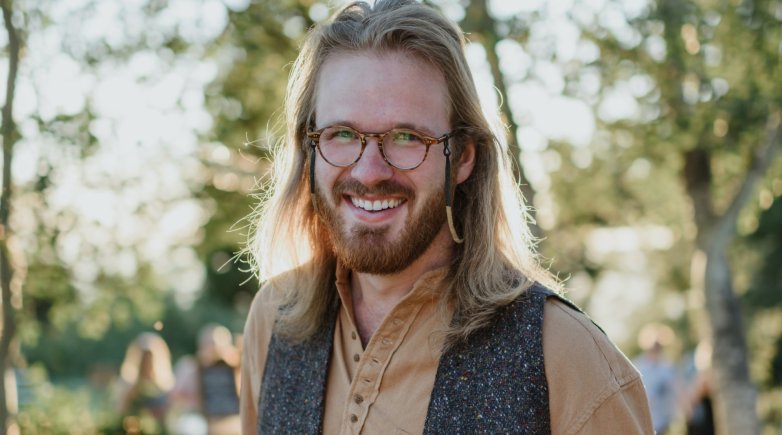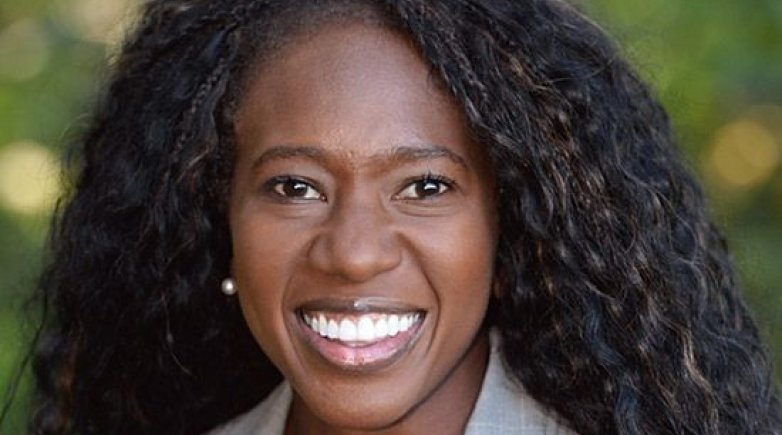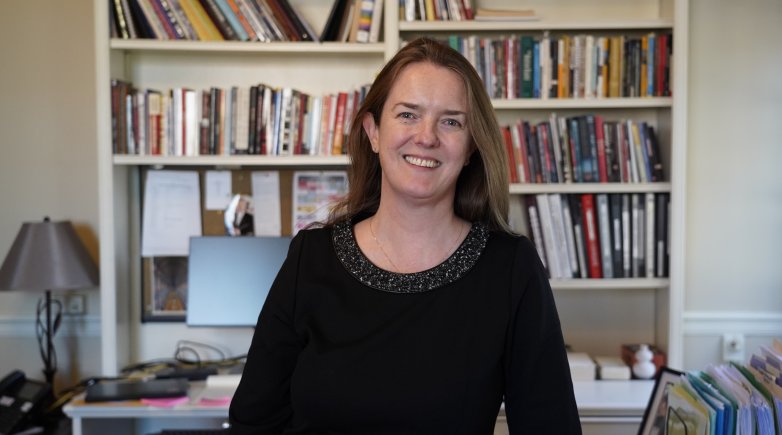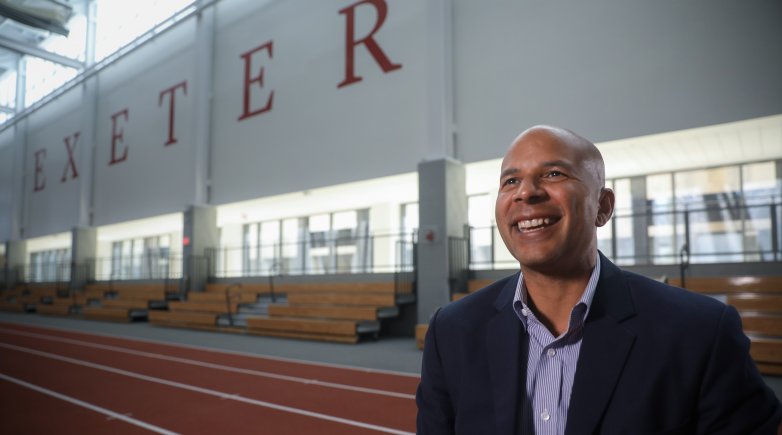A conversation with PEA's sustainability education coordinator
Patrick Kelly brings religion, ethics and philosophy to the role.
One of the overarching goals of the Academy’s Sustainability and Climate Action Plan is to “ensure that every student graduates from Exeter with a fundamental understanding of the principles of sustainability and the issues posed by climate change.” How do we do that? That’s a key concern for Patrick Kelly, who was named the Sustainability Education Coordinator this academic year, following Science Instructor Andrew McTammany. We caught up with Kelly, also an instructor in religion, ethics and philosophy, at the start of spring term to hear more about his role.
What does the Sustainability Education Coordinator do?
The role entails many kinds of work, including the planning of Climate Action Day, working with environmentally focused student clubs, working with my counterpart in facilities management, Warren Biggins, and sitting on a number of committees like the Natural Resources Committee, the Environmental Stewardship Committee and the Curriculum Committee.
Getting to work on what teaching in this era of climate change entails, at a school that is taking seriously its commitment to build a more sustainable campus, is exciting. This year has been one primarily of learning. Members of the community who have been integral to this work for years have taught me much about our progress as an institution. Students likewise have shared with me their past and present projects, interests and dreams for learning about sustainability and experimenting with new and traditional modes of addressing ecological problems locally and more broadly.
What personal experiences do you draw upon for this type of work?
My training has been in philosophical theology and ethics. I am currently working on a dissertation that considers ritual and sacramental traditions as modes of embodied pedagogy that we ought to constructively draw upon as we seek to form ourselves and our communities to meet the ethical challenges of the present moment, with a focus on anthropogenic climate change. This research and thinking definitely informs my work in the classroom, as well as how I inhabit this role. For instance, though climatic and environ-mental issues are daunting and seem so far beyond our individual control, I am committed to helping students recognize their own agency to address these problems. This commitment grounded my search for speakers who will come to campus to work with students on Climate Action Day.
Alongside my academic connection to this work, I love the outdoors. I grew up as a whitewater boater and was, for a time, a whitewater rafting guide in Colorado. One thing that I enjoy most about PEA is the accessibility of woodlands — I try to get out to them most days to walk my dogs. Being in the woods really transforms my day.
The curriculum is obviously a key component of this work. Tell us about the Green Umbrella Learning Lab course you taught this winter.
The course is designed as a project-based learning course focused on sustainability issues on campus, and, as such, it was student-driven in a mode quite unique from Harkness.
We began by engaging with staff, students and faculty to try to understand the issues on campus and then how to address those issues. While initial ideas ranged from aquaponics to a website or app to track emissions on campus and expanding composting, we eventually decided that we could make the most difference by focusing on both lighting and recycling in dorms. To that end the class designed a dorm event where they exchanged lightbulbs in dorm room lamps with more efficient LED bulbs and played an educational recycling game with students.
This course as it unfolded really leans into the best of PEA: It allows students to take the lead in addressing issues that matter to them and our community, and it enables them to teach their peers beyond the classroom space.
What are you really excited about?
At present, I am most excited about the student projects that are in the works and that I have the joy of getting to support. There is currently a project on permaculture gardening in the planning phase, which will hopefully be planted on campus sometime this year. There is also a group of students working to establish a small aquaponics setup in the science building, which I think is quite exciting.
What are some short-term goals?
I am aiming to garner a more robust grasp on the content regularly being taught across disciplines relating to sustainability, so I can assess what, if any, gaps are present. During this year, in part related to my work on the Curriculum Committee, I have been in conversation with scholars at Harvard and MIT who are innovators in sustainability education. Additionally, these conversations have focused on how we must adapt teaching in a time of climate crisis in order to equip students for success. Insights from these conversations have directly impacted my teaching. My hope is to bring these insights more formally to colleagues next year.
Do you find connections between your two roles, instructor and Sustainability Education Coordinator?
The connections between my work in religion, ethics and philosophy (REP) and that which I do as Sustainability Education Coordinator are many! Questions and ideas explored in REP are enormous questions about identity and purpose, meaning and values. The threats posed to human and other species’ populations, and the integrity of ecosystems, raise similarly powerful, existential questions. The ways we think about and live into addressing issues of sustainability are often, if not always, ethical. The frameworks and robust ethical assessment we teach in REP therefore directly relate to the work I do as sustainability coordinator. Further, the work in both positions demands the cultivation of imagination. To live sustainably in a rapidly changing (at times unpredictable) world requires that we creatively envision new possibilities for energy, transportation, infrastructure. Likewise, REP classes often work to equip students with skills to exercise their imaginations in relation to the powerful visions of the future that we all are fed by various media, religions and cultures to create the kind of future that they truly desire.
This interview first appeared in the Spring 2024 issue of The Exeter Bulletin.



